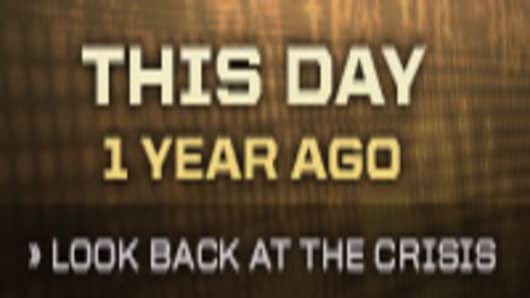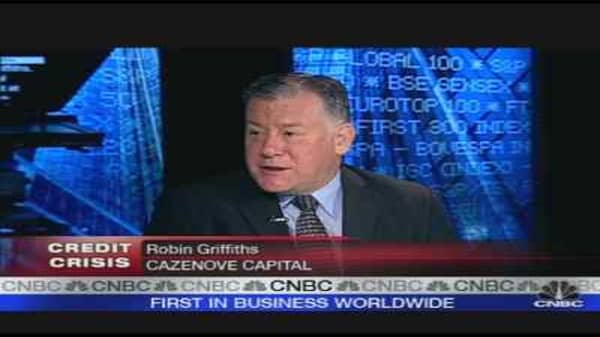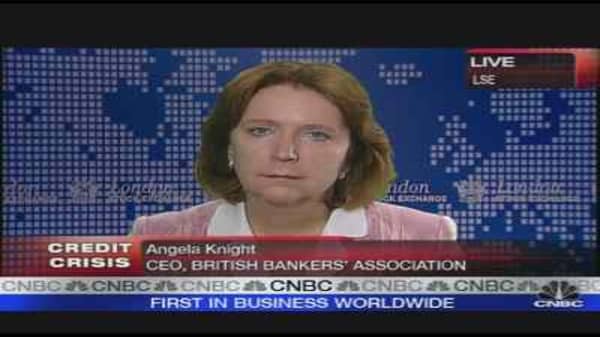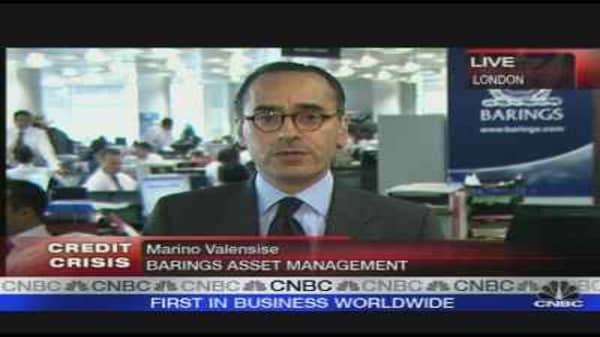As the trading day nears an end, the House rejects the financial rescue bill. Investors are stunned and dump stocks frantically until the Dow ends 777 points lower, at 10365.45, its biggest one-day point drop ever. The S&P 500 also logs its biggest one-day point drop, falling 106.59, or 8.8 percent, to 1106.42. The Nasdaq has its biggest one-day point decline since 2000, falling 199.61, or 9.1 percent, to 1983.73.
Wall Street's key barometer of investor fear, the VIX (CBOE Volatility Index), jumps 34.48 percent to 46.72, its highest level ever. The VIX hasn't been above 40 in more than 10 years.
"This is panic and...fear run amok," Zachary Karabell, president of River Twice Research, tells CNBC. "Right now we are in a classic moment of a financial meltdown."
Among the biggest decliners: National City , the most actively-traded stock on the New York Stock Exchange, which fell by 50 percent. Fifth Third , Sovereign Bancorp and First Federal (of California) each shed more than 30 percent.
In Europe, more unprecedented actions: The Belgian, Dutch and Luxembourg governments together take a 49-percent stake in financial group Fortis, injecting 11.2 billion euros ($16.4 billion) into the bank.
The German government and a consortium of banks say they'll provide 35 billion euros ($51.2 billion) in credit guarantees to troubled lender Hypo Real Estate, hoping for an "orderly winding down without the bank's assets being burned up." Hypo shares plunge 73.9 percent by the close.
What You Were Reading:
The UK government buys up the 50 billion pounds of loans, mostly mortgages, held by Bradford& Bingley. The lender's 200 branches and deposit portfolio have already bought up by Spain's Santander for some 400 million pounds.
Shares in French bank Dexia tumble more than 20 percent on a newspaper report that it might launch an emergency capital increase.
Art Cashin, director of floor operations for UBS Financial Services, tells CNBC that he learned early on in his career never to bet on the end of the world—it "only happens once." But, he adds, "It might not be a bad idea to find a bomb shelter somewhere."
What the Experts Were Saying:







